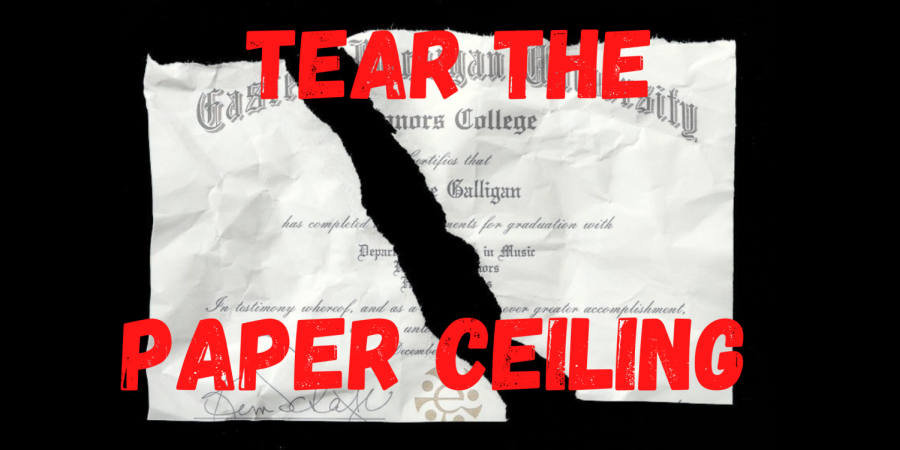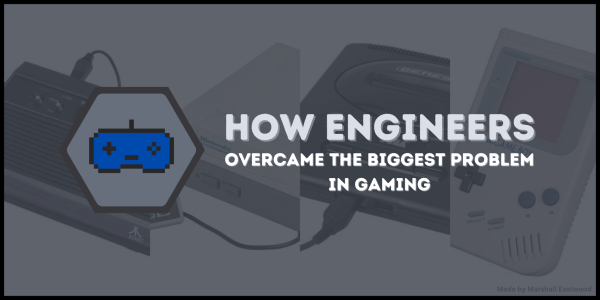Who Knew a Paper Ceiling Wouldn’t be Good for Business?
Every high school student has at least given one thought to this one little word: College. And with that thought came another: Money. The price of college has doubled since the start of the 21st century and has had a steady annual growth of 7%. Let’s assume you will be attending a standard in-state tuition for 4 years. For just one year of college, the average cost of tuition, room & board, and personal expenses will total up to nearly $26,000. For four years of college, the average cost is $102,000!
Of course, you can turn to student loans to help you pay for college, but that will probably leave you with some student loan debt depending on how much you take. The average student borrower takes around $30,000, leaving them with around $36,000 of student debt. In total, nearly 45.3 million students are in debt, with 95% of them being federal borrowers. 20 years after graduation half of the student borrowers still owe $20,000 to outstanding loan balances.
College is highly recommended due to the number of opportunities it opens for you. But since college is not required to enter the workforce and many new options are becoming available to young people. College today is expensive and maybe a financial burden for many students and families. Some students may choose only to complete 2 years for an Associate’s degree or even not go into college. Even if you don’t go to college and get your bachelor’s degree, you can still have a career in many different fields. It is reported that about 70 million workers in the United States do not attend a four-year college. These workers may have gone to community college, workforce training, boot camps, certificate programs, military service, or on-the-job learning, rather than earning a bachelor’s degree.
Unfortunately, The Paper Ceiling creates a blockade on many job opportunities in today’s world. The term “Paper Ceiling” is currently used to describe the invisible barrier that comes at every turn for workers without a bachelor’s degree. The Paper Ceiling is why more than 70 million workers in the U.S. — about half of the potential workforce — cannot apply for jobs requiring, at minimum, a bachelor’s degree.
Ryan Ziegler, 43, attended a trade school during his high school years in the late 1990s. He attended a vocational program that allowed him to study electrical technologies which included multiple focuses such as electric household wiring, electronics, PLC Logic Controls, and pneumatic controls. Ziegler graduated high school with an apprentice license and became a member of the International Brotherhood of Electrical Workers Union. This allowed Ziegler to have many job opportunities upon graduation with local companies.
“Throughout my time with the company, I had the opportunity to work for all the states learning all the rules and regulations allowing me to be very well-versed in the process. Being young and cocky, I had a standing bet for a full week’s pay to anyone in the department that no one knew as much as I did concerning all the different states and their regulations.”
However, due to The Paper Ceiling, Ryan was not hired for a full-time position in the company.
“Despite having this knowledge, I was never qualified for this company for a full-time position with benefits because I hadn’t completed my bachelor’s degree at that time. The company ended up hiring less knowledgeable individuals that didn’t even study a related major. I remember one person that was hired over me didn’t believe that manholes are real.”
Sources:
Hanson, Melanie. “Average Cost of College [2022]: Yearly Tuition + Expenses.” Education Data Initiative, 24 October 2022, https://educationdata.org/average-cost-of-college. Accessed 16 December 2022.
Hanson, Melanie. “Average Student Loan Debt [2022]: by Year, Age & More.” Education Data Initiative, 10 July 2021, https://educationdata.org/average-student-loan-debt. Accessed 16 December 2022.
“Tear the Paper Ceiling Partnership – BigFuture | College Board.” BigFuture, https://bigfuture.collegeboard.org/explore-careers/tear-the-paper-ceiling-partnership. Accessed 16 December 2022.
“Is The Paper Ceiling Hurting Your Company’s DEI?” The Forem, https://theforem.co/what-is-the-paper-ceiling-hurting-your-company-dei/. Accessed 12 January 2023.

Me Like Candy. Me Like Video Game. Me Like Carroll High School. Me Like Music. Me Like Friends.








